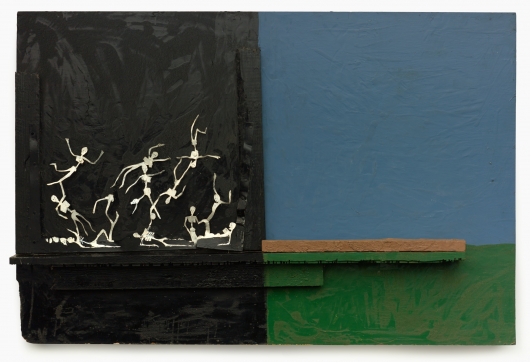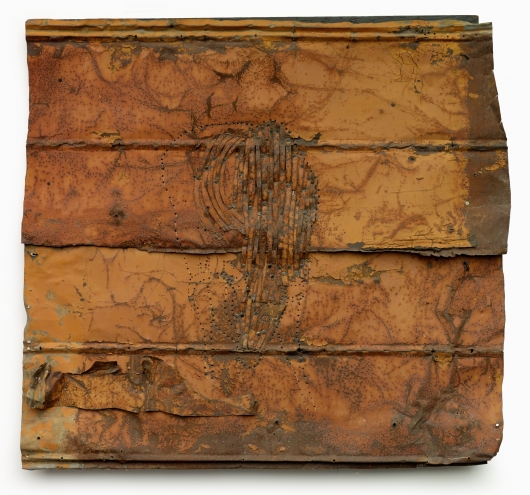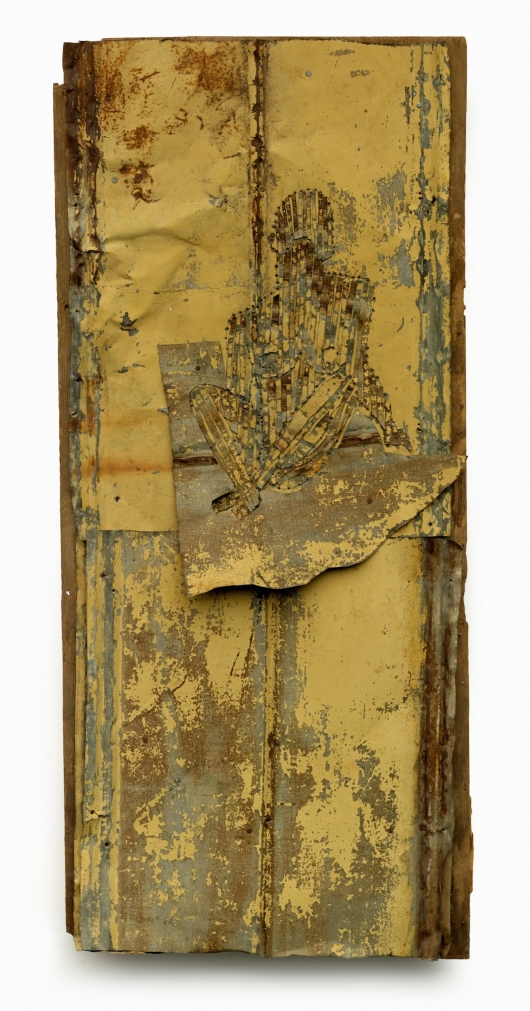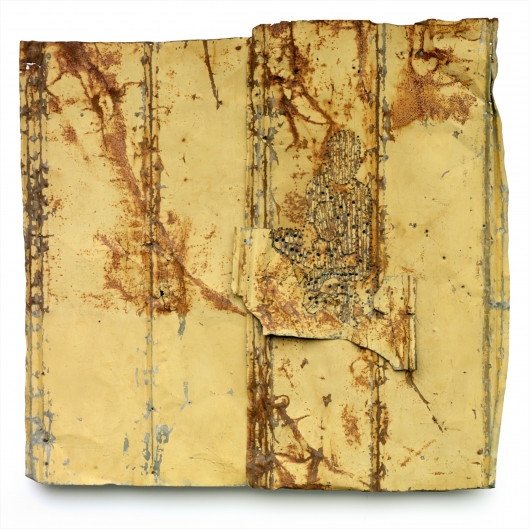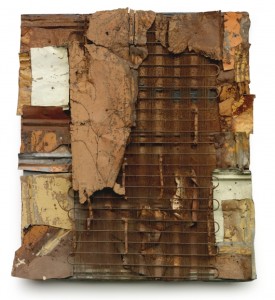
1965 – 1998
Ronald Lockett
Bessemer, Alabama
April Nineteenth (The Number), 1995.
About:
Holocaust, 1988.
Until his death in 1998 from AIDS-related pneumonia, Ronald Lockett was the youngest noteworthy southern African American vernacular visual artist, and one of the few in his tradition to possess no personal memories of the civil rights movement or the coarsely segregated social climate that preceded it. Throughout his life, Lockett was intensely self-conscious of the odds against him, of his membership in that most lost of recent American generations—inner-city black males—whose loudest cultural sign is the fear they provoke throughout American society. The art he left stands at a little-documented historical crossroads between two generations: between, on the one hand, a world of his African American fixed in their declining community, its ghosts whispering about prior times, and on the other, the world of late-twentieth-century urban black youth and the television. He lived after the great midcentury social struggles were over, when all the big issue had, to him, seemingly already been fought for and decided. His art would consequently be haunted by a quest to locate historical moorings for an existence he believed doomed or trapped. His accomplishment, ultimately, was to have wrought things personal and tough from the rumors, stereotypes, hunches, half-heard reminiscences, and television broadcasts through which he experienced history and meaning.
Drought, 1994.
Fear Within, 1995.
Fever Within, 1995.
Death’s siege of life tormented him. His art was death driven, a convergence of his personality, physiology, family, community, ethnicity, and finally, his contracting of a disease he equated with immortal Death. At least in his art, something rejuvenating emerged from his simultaneous sensing of his social death as a black male, the decay of his community and the occupations that sustained his ancestors, the evaporation of shared memories and experiences as ties to the past, the horrors of extinctions and genocides, his nuclear family’s dissolution, his sexual frustrations and fears, and HIV. (quotes from an essay of Paul Arnett on Souls Grown Deep site)

